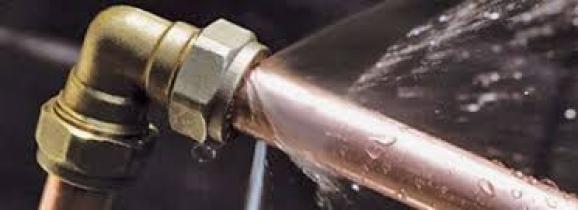Find The Factors Causing Water Seepage in The Residence
Find The Factors Causing Water Seepage in The Residence
Blog Article
The article author is making a number of good points on How to detect water leaks in your home in general in this article directly below.

Leakages not just create waste of water but can additionally create unnecessary damage to your house as well as advertise undesirable organic development. By looking as well as understanding for daily circumstances that create leaks, you can secure your residence from future leaks as well as unneeded damages.
Immediate temperature level changes.
Extreme temperature level adjustments in our pipes can create them to increase and get suddenly. This expansion and also contraction might create cracks in the pipes, especially if the temperature are below freezing. It would be best if you watched on exactly how your plumbing functions. The visibility of the previously pointed out conditions regularly suggests a high threat.
Corroded water systems
This may be the cause of discoloration or warping on your water pipes. If our plumbing system is old, take into consideration replacing the pipes considering that they are at a higher threat of corrosion than the more recent designs.
Defective Pipe Joints
Pipeline joints can wear away over time, resulting in water leaks. If you have loud pipelines that make ticking or banging sounds, especially when the hot water is transformed on, your pipeline joints are probably under a lot of pressure.
Elbowing in origins
Most water leaks begin outside your home instead of inside it. If you notice an unexpected decrease in water stress, claim in your tap, require time to head out and examine your backyard. You may see damp patches or sinkholes in your lawn, and that may mean that tree roots are attacking water lines triggering water to seep out. You can have your plumber check for intrusion, especially if you have trees or bushes near your residential or commercial property.
Poor Water Connectors
At times, a leakage can be created by loosened hose pipes and pipelines that provide your devices. In situation of a water connections leak, you may observe water running straight from the supply line or puddles around your home appliances.
Obstructed Drains
Clogged drains pipes could be irritating as well as inconveniencing, however they can sometimes end up causing an overflow causing break pipelines. Maintain getting rid of any type of materials that might drop your drains that might obstruct them to stay clear of such hassles.
All the above are root causes of leakages however not all water leakages result from plumbing leaks; some leaks may come from roof covering leakages. All leakages should be fixed immediately to prevent water damages.
Leaks not just cause waste of water yet can additionally create unnecessary damage to your home as well as promote unwanted organic development. By recognizing and looking for everyday situations that create leakages, you can secure your house from future leakages as well as unneeded damage. Today, we will certainly look at 6 leak causes that may be creating your pipelines to leak.
At times, a leak can be created by loose tubes as well as pipelines that supply your home appliances. In instance of a water links leak, you might see water running directly from the supply line or pools around your appliances.
How To Check For Water Leak In Your Home
How To Check for Leaks
The average household's leaks can account for nearly 10,000 gallons of water wasted every year and ten percent of homes have leaks that waste 90 gallons or more per day. Common types of leaks found in the home are worn toilet flappers, dripping faucets, and other leaking valves. These types of leaks are often easy to fix, requiring only a few tools and hardware that can pay for themselves in water savings. Fixing easily corrected household water leaks can save homeowners about 10 percent on their water bills.
To check for leaks in your home, you first need to determine whether you're wasting water and then identify the source of the leak. Here are some tips for finding leaks:
Take a look at your water usage during a colder month, such as January or February. If a family of four exceeds 12,000 gallons per month, there are serious leaks.
Check your water meter before and after a two-hour period when no water is being used. If the meter changes at all, you probably have a leak.
Identify toilet leaks by placing a drop of food coloring in the toilet tank. If any color shows up in the bowl after 10 minutes, you have a leak. (Be sure to flush immediately after the experiment to avoid staining the tank.)
Examine faucet gaskets and pipe fittings for any water on the outside of the pipe to check for surface leaks.
Undetected water leaks can happen without the home or business owner even realizing. If you suspect a water leak, but not able to find the source. It is time to contact a professional water leak detection service, The Leak Doctor.
How To Find a Water Leak In Your Home
https://www.leakdoctor.com/blog/How-To-Check-For-Water-Leak-In-Your-Home_AE197.html

We were guided to that article about Common Water Leaks In House from a friend on our other domain. Sharing is caring. Helping people is fun. I thank you for reading our article about How to detect water leaks in your home.
Drain woes? Connect. Report this page